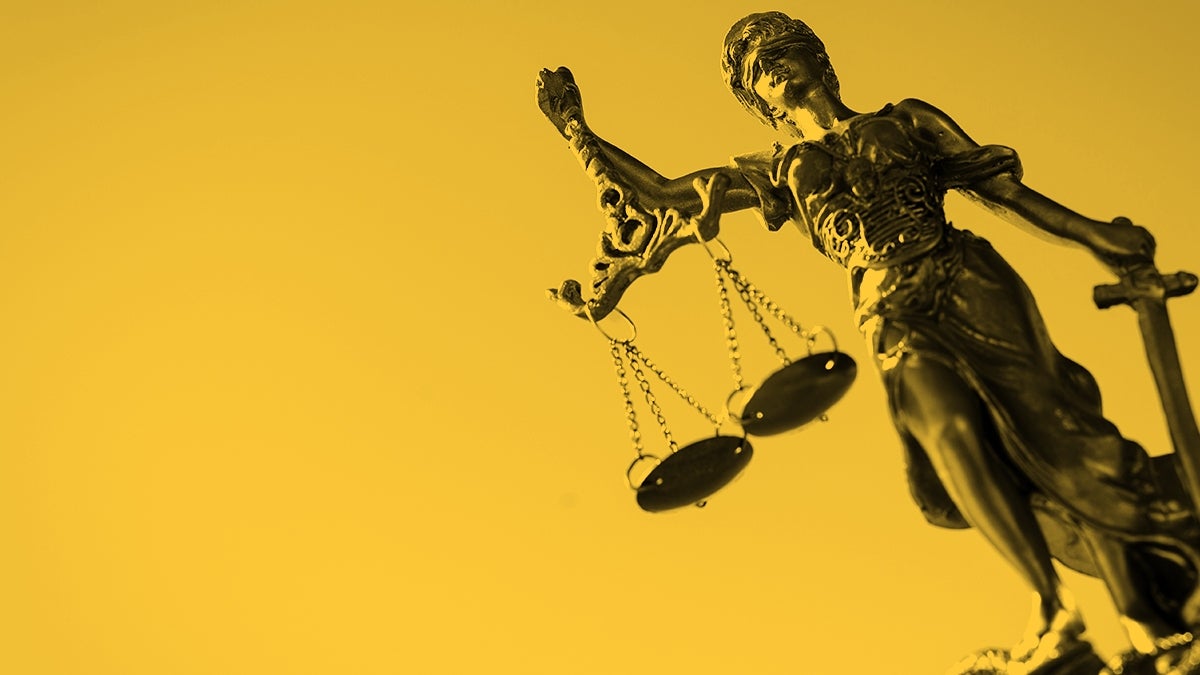Do you ever wonder about the origins of democracy?
The CLASroom, a new video series from Arizona State University’s College of Liberal Arts and Sciences, uncovers the origins of democracy with roots in Ancient Greece.
Professor Mike Tueller in the School of International Letters and Cultures discusses the history of democracy as well as other common political terms that originate from Greek language. He delves into certain etymologies — the study of the origin of words — to shed more light on the historical development of the meaning behind these words.
“I’m interested in the etymology of words — taking them apart, seeing where they come from and how they’ve evolved,” Tueller said. “It’s important to track the path we’ve followed in those words because words really are the basics by which we understand our political system.”
The journey to understanding democracy starts with the word “polites,” which means someone who inhabits a “polis,” also known as a city or city-state. Everyone in a “polis” works as a unit to organize a political agenda. If someone is a “polites,” they’re a citizen.
“Now, you’ve probably seen the word citizen used in a lot of ways,” said Tueller. “My favorite bad example is the way it’s used on high school report cards. If you get a high school report card and it says good citizenship, you’re doing exactly what people in authority want you to do, but that’s not what the word citizen or ‘polites’ originally meant. It meant you are the one who is in authority.”
The “politai” are the ones in power. They have the authority to operate the state, whether directly through voting on an actual measure or indirectly through electing representatives. Therefore, good citizenship was not a matter of being silent, but a matter of speaking out responsibly.
“When the ancient Greeks talked about the thing we call democracy, nowadays, they used a few different words for it,” Tueller said. “One of the words is ‘isonomia,’ which essentially means equality under the law.”
The word “demokratia,” where the word democracy originates from, was not used very often to talk about democracy in Ancient Greece.
“Democracy essentially means people power, but the resonance of it in antiquity was a little bit more like mob rule,” Tueller said. “The people who best supported and explained democracy explained it in just those ways: that everybody gets the same benefits and you can ensure that everybody gets the same benefits if they are all deciding what those should be together.”
However, many people started to notice not all people in an “isonomia,” or in a democracy, were equal under the law. For example, women and children were not equal. Not everyone was given the opportunity to participate or benefit from the system of “isonomia.” So, there were flaws in ancient democracy.
“Nevertheless, the principle is still one we can really learn from,” Tueller said. “In a democracy, everyone who counted would be treated equally under the law. The fact that you had more money or better connections shouldn’t matter. You would still be subject to the same laws, the same enforcement and possibly the same penalties as everyone else.”
In the city of Athens during the classical period of Ancient Greece, magistrates would be chosen by lot to represent the people. Everyone had an equal chance. No one would campaign or try to buy the influence of anyone else. If appointed, they would be subject to accountability at the hands of the people.
Mike Tueller
“If an Athenian were to come visit us today, he would be very surprised that we’re calling our system a democracy,” Tueller said. “Our system, even when it operates at its best, is a representative democracy and the Athenians would not have anything to do with that kind of system. They looked at a representative democracy as just another way in which elites always ended up getting into the top spot.”
Athenians believed all the important decisions needed to be made by everyone in order to have a real democracy. The U.S. political system is more of a hybrid system with campaigns, wealth and power influencing voting decisions, Tueller said. Oftentimes, elites are the ones who are elected to the top positions.
“For Athenians, that wouldn’t be satisfactory,” Tueller said. “Whether it is for us is a matter we can debate among ourselves, just as the ancients would debate whether they wanted a democracy or an oligarchy or any other kind of system.”
Athenians managed to resist “tyranny,” when people are ruled by one person with absolute power. However, they couldn’t escape “demagoguery,” when a person persuades the masses to make poor decisions. Athenians noticed the issue with “demagoguery” and tried to control it, but it’s a problem to which democracies are always going to be subject, Tueller said
“If you’re going to live in a democracy, you may have avoided the problems of tyranny or dictatorship but demagoguery is something you always have to be on the lookout for,” Tueller said. “Only by operating as a citizen, can you resist the possibility of all citizens being marshalled together to do something that is going to turn out badly in the end. That’s why citizens need to constantly stay informed and be decision makers on their own rather than being led by individual leaders.”
More Law, journalism and politics

A new twist on fantasy sports brought on by ASU ties
A new fantasy sports gaming app is taking traditional fantasy sports and mixing them with a strategic, territory-based twist.Maptasy Sports started as a passion project for Arizona State University…

'Politics Beyond the Aisle' series to explore the stories of public officials
In an effort to build a stronger connection between students and political and civic leaders, Arizona State University’s School of Politics and Global Studies hosted the first event of its new series…

ASU committed to advancing free speech
A core pillar of democracy and our concept as a nation has always been freedom — that includes freedom of speech. But what does that really mean?Higher education doesn’t have an agenda to curate a…



